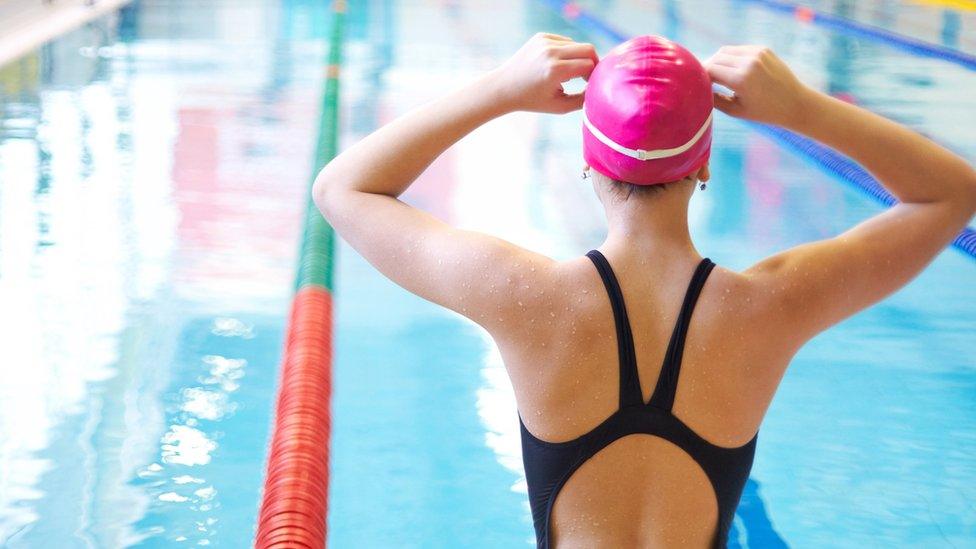Swim England 'truly sorry' over abuse and bullying claims
- Published
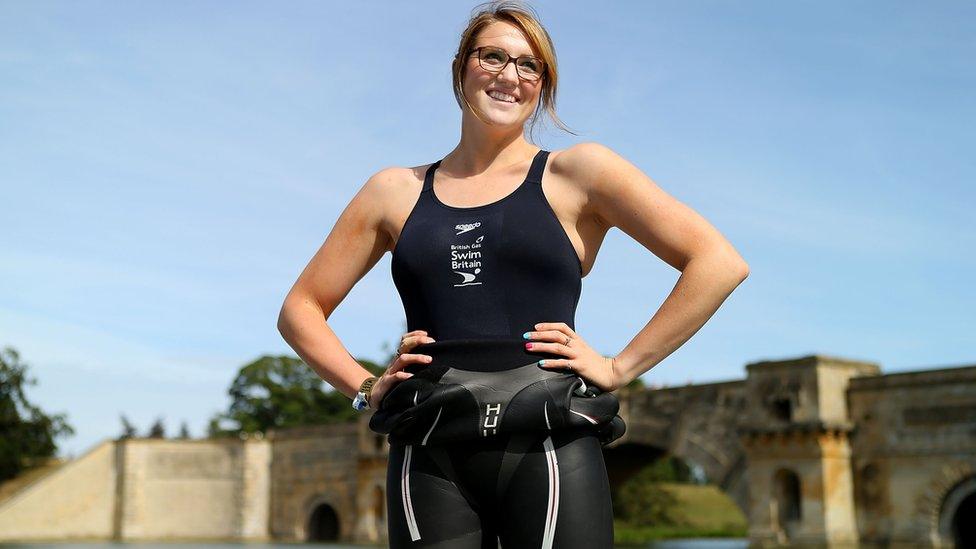
Olympic medallist Cassie Patten says she suffered "disordered eating" for years due to negative comments
The head of Swim England said she was "truly sorry" swimmers had suffered abuse and vowed to "do everything" to erase a culture of bullying.
Jane Nickerson's comments come after the BBC revealed swimmers developed eating disorders and serious mental health problems due to abusive coaches.
Olympic medallist Cassie Patten said change was vital, having felt "broken" after years of negative comments.
Swim England said an independent review would engage with swimmers and coaches.
More than 100 swimmers have joined an online support group after Commonwealth youth gold medallist Phoebe Lenderyou said she had battled bulimia for five years due to coaches' obsession with her weight.
Multiple swimmers have told the BBC they had been damaged by relentless bullying, humiliating public weigh-ins, fat-shaming and training on injuries.
Many said they had been scared to speak out for fear of being treated worse or kicked off their team.
Ms Nickerson said recent experiences "across society and within our sports have shown in painful detail exactly why" change was needed.
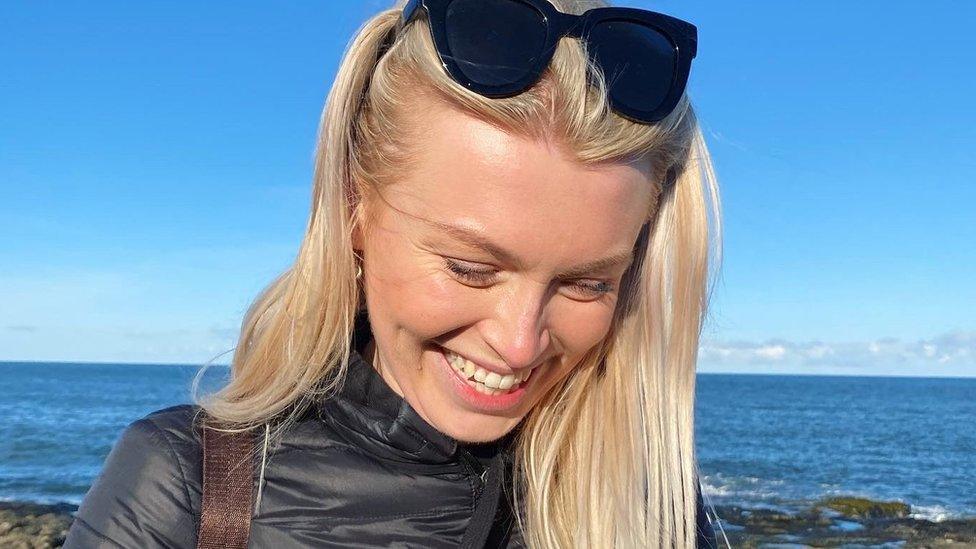
More than 100 swimmers have reached out to Phoebe Lenderyou after she spoke out about her eating disorder
"We have a zero-tolerance approach to poor behaviour, but we have to be open and recognise that sadly not everyone has had the positive experience we would expect from participation in our sports," she said.
"For that I am truly sorry.
"If we are to be successful in this cultural change journey then we need everyone in aquatics, in any role at any level, to commit to collectively doing everything we possibly can to deliver the positive, safe, welcoming environment and culture that we all want to see."
Details of the independent review were revealed as the Loughborough-based governing body launched its safeguarding and welfare plan, the Heart of Aquatics, external.
It will appoint an independent expert to listen to the views of everyone in aquatics - from swimmers and their parents to coaches, volunteers, clubs and swim schools - and publish and learn from the findings.
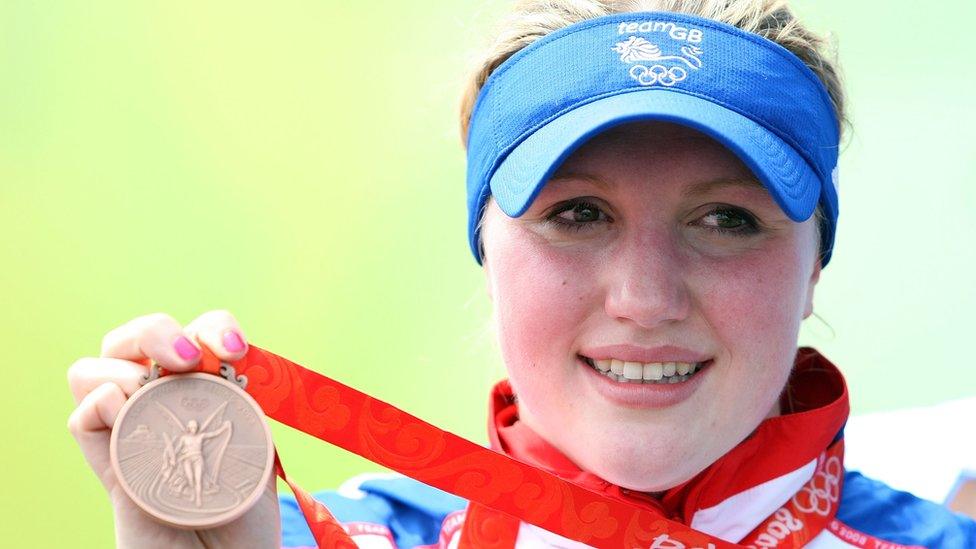
Cassie Patten, who won bronze at Beijing 2008, says she felt like a "commodity" rather than a person to her coaches
Former Team GB swimmer Patten sacrificed many things in her childhood to focus on swimming and was rewarded with a bronze medal at the 2008 Beijing Olympics in the 10km open water event.
But her adoration of the sport was quickly replaced with loathing when she began suffering serious "disordered eating" after becoming "fixated" with losing weight on her coach's instructions.
She said a "massive disproportionate amount of focus" had been put on her physique after she had put on some weight following her Olympic success.
"I'd make myself sick, not drink anything the night before, I'd be going to the toilet several times before my weigh-ins; anything to get the lowest possible number on the scales," she said.
The cracks had started to show when she was younger and, as her Olympic dream edged closer, she told a coach she had decided to switch clubs.
"He ignored me for months until I left. It showed me I was a commodity to him and not a person," she said.
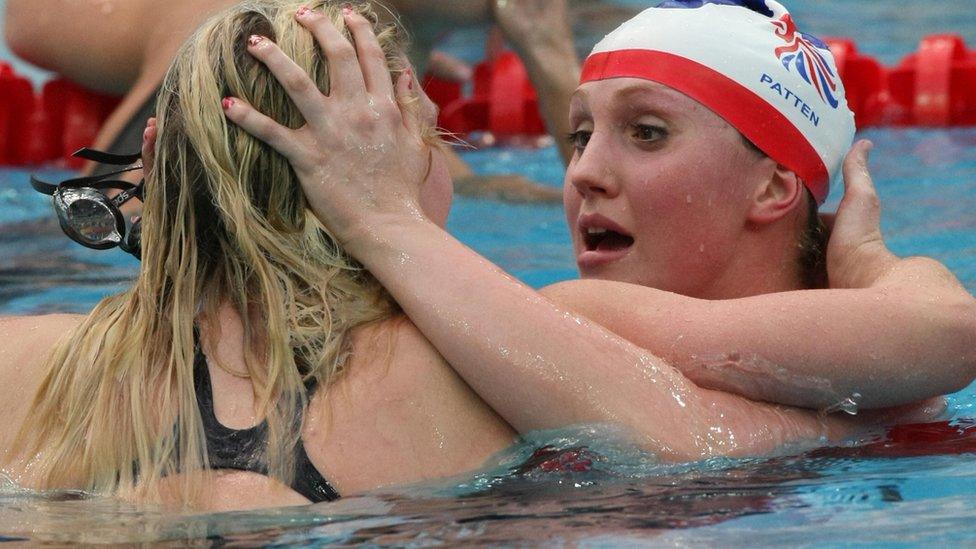
Patten was the first to congratulate Rebecca Adlington after her 800m freestyle success
The athlete, who raced alongside gold medallist Rebecca Adlington in Beijing, ended up quitting aged 24 in 2011 due to a shoulder injury, her hopes of competing at the 2012 London Olympics in tatters.
"I was broken, mentally a shell of who I was and a very unhappy person. I hated swimming, I couldn't put on a swimming costume for years," she said.
"I've spent years getting over it and working on my relationship with food," she said.
Patten said she had been inundated with swimmers coming forward to share their own stories of abuse since the BBC's article.
She said she had also reached out to one of her former coaches to talk about what had happened and he had apologised.
"I think that's so important to recognise. It does show that there are coaches who are willing to be reflective."
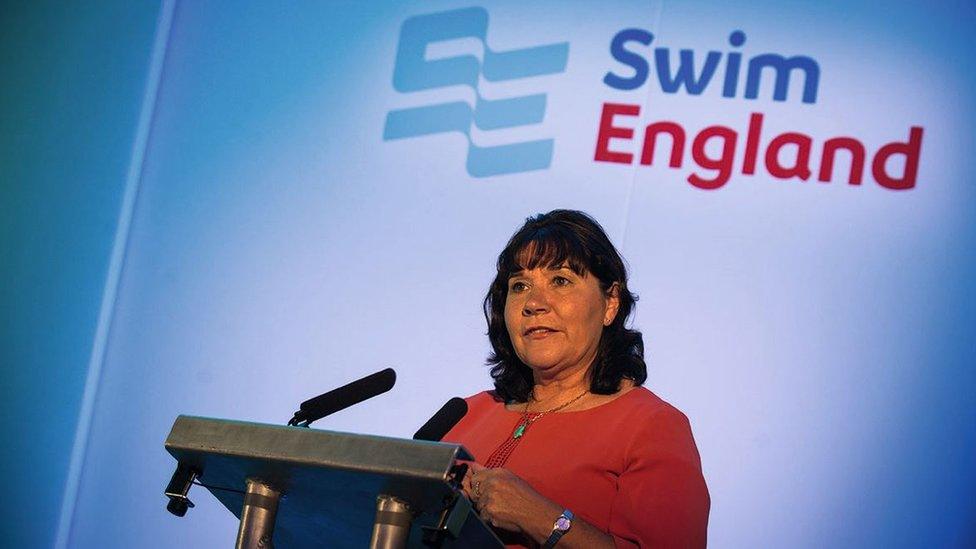
Jane Nickerson, who hails from Coventry, is to retire from Swim England later this year
Swim England is already undergoing a separate review into how it handled complaints following the closure of Ellesmere College Titans in the wake of a damning report and a separate investigation into City of Oxford Swimming Club.
Richard Hookway, who chairs the organisation's board, said it was determined to get an "honest, thorough reflection of the culture within aquatics now and previously" by listening to members.
"Aquatics is a powerful force for good... supporting people's physical and mental health and there are fantastic examples of this across the country," he said.
"However, we know that, on occasions, behaviours have fallen short of the culture we desire.
"We recognise we must continuously strive to improve in order to foster a positive culture and deliver for the people who are the lifeblood of our aquatic sports."
Patten, who lives in Oxfordshire and runs her own coaching company, is pushing for regular mandatory training for coaches. Currently, coaches are not obligated to upskill once they have qualified.
She wants the culture change to include keeping the conversation going, a willingness to question and review practices and for coaches to be reflective.
"We must also have respectful challenge. It should be OK for swimmers to speak up if they aren't happy and also move past coaching norms. What was acceptable 10-20 years ago may not be acceptable now," she said.
She also had a message for those who perceived people speaking out about emotional abuse as weak.
"I don't buy this snowflake stuff. Giving someone the respect they deserve is not being a snowflake," she said.
"Just because this might be a general culture within sport doesn't mean we have to accept it in swimming."

If you have been affected by the issues raised in this story help and support is available via the BBC Action Line

Follow BBC West Midlands on Facebook, external, Twitter, external and Instagram, external. Send your story ideas to: newsonline.westmidlands@bbc.co.uk, external
Related topics
- Published24 February 2023

- Published12 November 2022
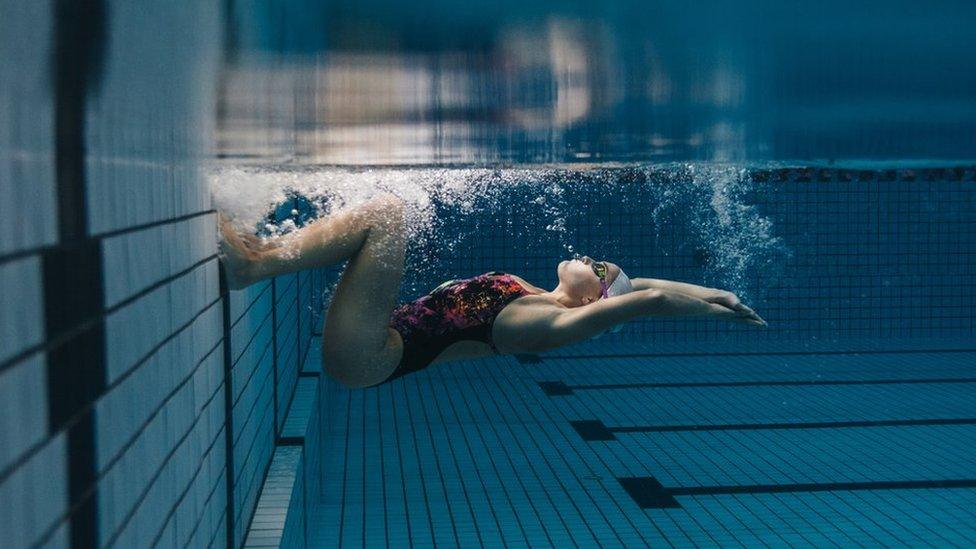
- Published18 February 2022
